Department of Computer Science and Operations Research, Université de Montréal, Canada
Deep Learning
Monte Carlo and Machine Learning in Radiotherapy Treatment Planning
Causal Inference and Applications in Medicine and Radiotherapy
Department of Computer Science and Operations Research, Université de Montréal, Canada
Deep Learning
Monte Carlo and Machine Learning in Radiotherapy Treatment Planning
Causal Inference and Applications in Medicine and Radiotherapy
Deformable Registration and Dose Accumulation in Radiation Therapy
Outcomes-driven Treatment Planning
Integrating Biology and Physics into Treatment Management
Radiomics Harmonization in Radiation Oncology
Infrastructure for Big Data Collection in Healthcare
Flow Optimization in Radiotherapy Centers
Leveraging Clinical Big Data to Bring AI into Clinical Practice
External Validation of Predictive Models of Toxicity
Deep Learning as Applied to Image Segmentation for Radiation Therapy
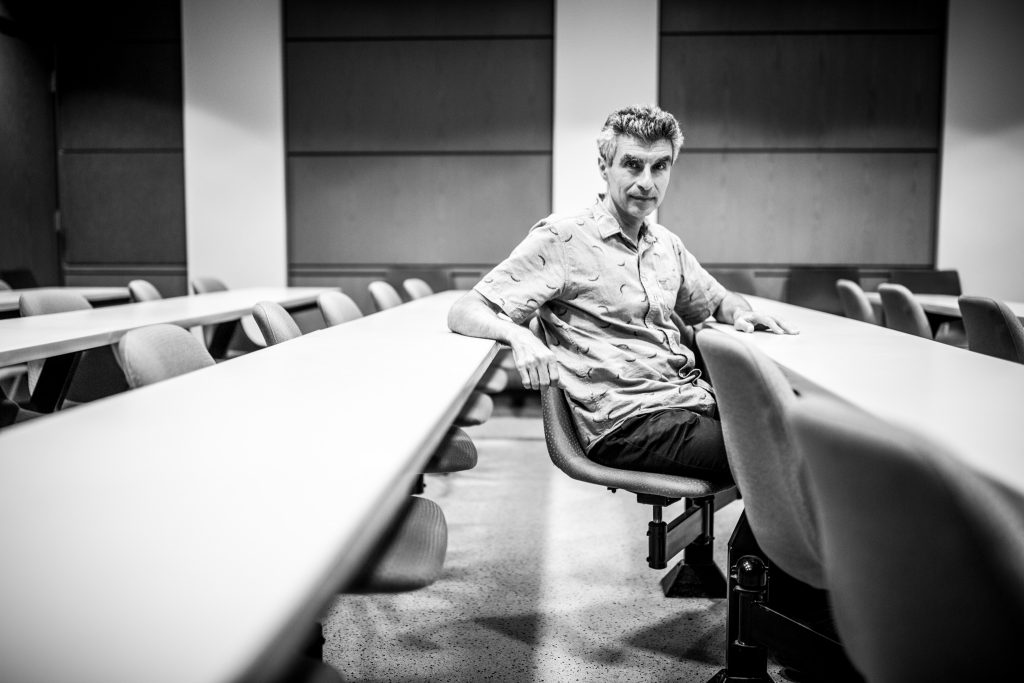 Keynote
Keynote
ICCR Opening Keynote Speaker
Recognized as one of the world’s leading experts in artificial intelligence and a pioneer in deep learning, Yoshua Bengio studied in Montreal, earned his PhD in computer science from McGill University in 1991, and did post-doctoral studies at MIT.
Since 1993, he has been a professor in the Department of Computer Science and Operations Research at the Université de Montréal, and he holds the Canada Research Chair in Statistical Learning Algorithms. In addition, he is Scientific Director of IVADO and Mila, the Quebec Artificial Intelligence Institute, the world’s largest deep learning academic research group.
An Officer of the Order of Canada, he is also a Fellow of the Royal Society of Canada, the recipient of the Marie-Victorin Prize in 2017, and was named Radio-Canada’s Scientist of the Year for 2017. In 2018, he was awarded the 50th anniversary medal of Quebec’s Ministry of International Relations and La Francophonie.
Yoshua Bengio is one of the world’s most cited computer scientists, thanks to his three books and more than 500 publications. His h-index stands at 131, with more than 149,000 Google Scholar citations. His ambition is to understand the principles that lead to intelligence through learning, as well as promote the development of artificial intelligence for the benefit of all.
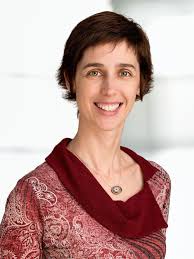 Keynote
Keynote
MCMA & ICCR Keynote Speaker
Joelle Pineau is an Associate Professor and William Dawson Scholar at McGill University where she co-directs the Reasoning and Learning Lab. She also leads the Facebook AI Research lab in Montreal, Canada. She holds a BASc in Engineering from the University of Waterloo, and an MSc and PhD in Robotics from Carnegie Mellon University.
Dr. Pineau’s research focuses on developing new models and algorithms for planning and learning in complex partially-observable domains. She also works on applying these algorithms to complex problems in robotics, health care, games and conversational agents.
She serves on the editorial board of the Journal of Artificial Intelligence Research and the Journal of Machine Learning Research and is currently President of the International Machine Learning Society. She is a recipient of NSERC’s E.W.R. Steacie Memorial Fellowship (2018), a Fellow of the Association for the Advancement of Artificial Intelligence (AAAI), a Senior Fellow of the Canadian Institute for Advanced Research (CIFAR) and in 2016 was named a member of the College of New Scholars, Artists and Scientists by the Royal Society of Canada.
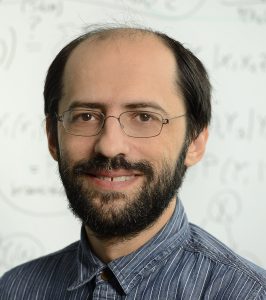 Keynote
Keynote
ICCR Keynote Speaker
Dr. Shpitser is a John C. Malone Assistant Professor at the departments of Computer Science at Johns Hopkins University, with a joint appointment at the department of Biostatistics. Prior to joining Johns Hopkins, he was a lecturer at the University of Southampton, and a research fellow at the Harvard School of Public Health. His graduate work was done at UCLA.
Dr. Shpitser has co-authored over forty publications, and multiple book chapters; his interests include all areas of causal inference, and missing data, graphical and semi-parametric models, inference with dependence data, and algorithmic fairness.
Dr. Shpitser was the recipient of the 2017 Causality In Statistics Education Award from the American Statistical Association. Dr. Shpitser is an associate editor of the Journal of Causal Inference, senior program committee member for the International Conference on Machine Learning, and a reviewer for numerous peer reviewed conferences and journals in machine learning, artificial intelligence, statistics, public health, and philosophy.
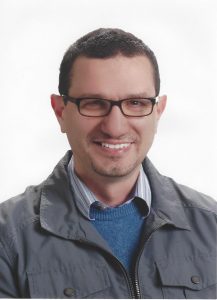
ICCR & MCMA Invited Speaker
Issam El Naqa received his BSc (1992) and MSc (1995) in Electrical and Communication Engineering from the University of Jordan, Jordan. He worked as a software engineer at the Computer Engineering Bureau (CEB), Jordan, 1995-1996. He was awarded a DAAD scholarship to Germany, where he was a visiting scholar at the RWTH Aachen, 1996-1998. He completed his PhD (2002) in Electrical and Computer Engineering from Illinois Institute of Technology, Chicago, IL, USA, receiving highest academic distinction award for his PhD work. He completed an M.A. (2007) in Biology Science from Washington University in St. Louis, St. Louis, MO, USA, where he was pursuing a post-doctoral fellowship in medical physics and was subsequently hired as a Instructor (2005-2007) and then an Assistant Professor (2007-2010) at the departments of radiation oncology and the division of biomedical and biological sciences and was an adjunct faculty at the department of Electrical engineering. He became an Associate Professor at McGill University Health Centre/Medical Physics Unit (2010-2015) and associate member of at the departments of Physics, Biomedical Engineering, and Experimental medicine, where he was a designated scholar.
He is currently an Associate Professor of Radiation Oncology at the University of Michigan at Ann Arbor and associate member in Applied Physics. He is a certified Medical Physicist by the American Board of Radiology.
He is a recognized expert in the fields of image processing, bioinformatics, computational radiobiology, and treatment outcomes modeling and has published extensively in these areas with more than 150 peer-reviewed journal publications and 3 edited textbooks. He has been an acting member of several academic and professional societies. His research has been funded by several federal and private grants and serves as a peer-reviewer and editorial board member for several leading international journals in his areas of expertise.

ICCR Invited Speaker
Kristy K. Brock received her PhD in Nuclear Engineering and Radiological Sciences from the University of Michigan in 2003. After receiving her PhD, she joined the faculty at the University of Toronto (Radiation Medicine Program, Princess Margaret Hospital) and subsequently the faculty at the University of Michigan. She is currently a Professor with tenure in the Department of Imaging Physics at the University of Texas MD Anderson Cancer Center, where she is the Director for the Image-Guided Cancer Therapy Research Program. Her research has focused on image guided therapy, where she has developed a biomechanical model-based deformable image registration algorithm to integrate imaging into treatment planning, delivery, and response assessment as well as to understand an validate imaging signals through correlative pathology. She is board certified by the American Board of Radiology in Therapeutic Medical Physics.
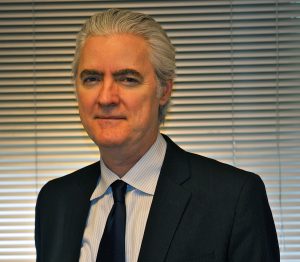
ICCR Invited Speaker
Joseph O. Deasy, PhD is Chair of the Department of Medical Physics, and holder of the Enid A. Haupt Endowed Chair in Medical Physics, at Memorial Sloan Kettering Cancer Center, New York.
Dr. Deasy received a PhD in Physics from the University of Kentucky in 1992, followed by a post-doctoral fellowship at the University of Wisconsin-Madison, with mentors Rock Mackie and Jack Fowler. He is the chief architect of the open-source Computational Environment for Radiological Research (CERR) software system, now used by hundreds of researchers worldwide. He co-led the widely-used QUANTEC review of normal tissue toxicity. He was the first to propose, in 2003, using hierarchical optimization for treatment planning, a technique now being used at Memorial Sloan Kettering and by other groups. He recently co-founded the AI-computational pathology company PAIGE.ai. Dr. Deasy’s current interests are informatics, radiobiological model of treatment response, outcomes-driven treatment planning, and developing machine learning and network based analysis methods of radiomic and genomic data in order to optimize cancer patient management decisions.

ICCR Invited Speaker
After an initial formation in computer sciences at the University of Strasbourg, France, Mathieu Hatt received his PhD in medical image processing and analysis in 2008, and his habilitation to supervise research degree in 2012, both from the University of Brest, France.
M. Hatt has been a post-doc fellow in the LaTIM, INSERM UMR 1101 (Brest) between 2009 and 2012. He was a visiting fellow in 2011 at the Hammersmith Hospital (Imperial College London, UK), and a research fellow in 2011-2012 at the Stichting Maastricht Radiation Oncology (MAASTRO) in the Netherlands.
M. Hatt was recruited in 2012 by the French National Institute for Health and Medical Research (INSERM) as a junior research associate. He is currently carrying out research activities and projects related to multiparametric modelling in oncology applications relying on machine learning, radiomics and image processing of multimodal PET/CT and MRI images, supervising several PhD students and post-docs.
To date, M. Hatt has published more than 60 original papers in peer-reviewed journals, as well as letters to the editor, editorials and review papers.
In 2009, he received for his PhD on PET image segmentation the 1st prize for best biomedical research PhD in 2008 delivered by the French section of the IEEE. In 2014, he was further recognized with the Bruce H. Hasegawa Young Investigator Medical Imaging Science Award presented by IEEE NPSS and NMISC for his “contributions to the field of medical image analysis and processing for oncology imaging and radiotherapy applications”. He also received several awards from international scientific societies such as travel grants from the IEEE, 1 best-in-physics and 2 Science council session: the physics of cancer awards from the AAPM, and the Journal of applied clinical medical physics paper – medical imaging physics award.
He is a member of the following scientific societies: the IEEE, the NPSS, the SNMMI and the AAPM and the following scientific committees: the SNMMI physics, instrumentation and data sciences council, the IEEE NMISC, and the AAPM Taskgroup 211. He also serves as an associate editor for the Medical Physics, Journal of Nuclear Medicine and PLOS One journals and as a regular reviewer for numerous journals in the field of medical imaging.

ICCR Invited Speaker
David Jaffray is the Executive Vice President of Technology and Innovation at the University Health Network (UHN) and the Director of Medical Physics. He holds the Fidani Chair in Radiation Physics and is a principal in the STTARR Innovation Centre. He is also the Director of the TECHNA Institute and a Senior Scientist at the Princess Margaret Cancer Centre. Dr. Jaffray is a Professor in the Departments of Radiation Oncology, Medical Biophysics, and Institute for Biomaterials and Biomedical Engineering at the University of Toronto. He has numerous patents and >200 peer-reviewed publications. His current research interests focus on the development of imaging technologies and methods with a focus on image-guided interventions, including radiation therapy and surgery.
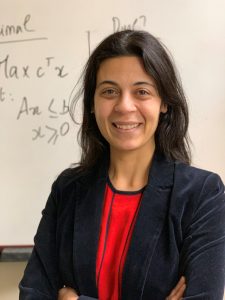
ICCR Invited Speaker
Nadia Lahrichi holds a PhD in operations research by Polytechnique Montreal, where she is now a professor in the Department of Mathematical and Industrial Engineering. Her research focuses in applying modeling and operational research tools in healthcare. Her recent work has examined patient flow optimization, scheduling and workforce planning problems. She has received the CORS practice prize competition for outstanding application of operational research (2018) and the GISEH best paper award (2012, 2016).
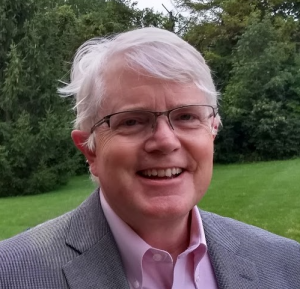
ICCR Invited Speaker
Charles Mayo received his doctoral degree in Physics from the University of Massachusetts in Amherst in 1990. His thesis centered on development of an optical technique for utilizing Surface Plasmon Resonance as an immuno-assay method and technique for measuring antibody-antigen adsorption kinetics.
With a passion for serving and improving patient care, his professional career has focused on clinical medical physics practice, research and development. His publication record has emphasized development of advance planning techniques and creation of software applications, statistical and machine learning models and databases to improve delivery of care and understanding of outcomes. He is chair of the AAPM working group 263 that succeeded the TG-263 Standardizing Nomenclatures in Radiation Oncology. He is chair of the AAPM Big Data Subcommittee of the Data Sciences committed and a member of the Radiation Oncology Ontology Work Group.
Dr. Mayo is at the University of Michigan were his current research is focused on development, use and extension of big data analytics systems in multi-institutional, multi-national settings including introduction of Artificial Intelligence leveraging big data into clinical processes.
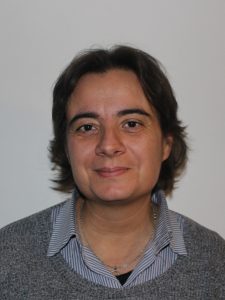
ICCR Invited Speaker
Tiziana Rancati is a medical physics researcher at the Prostate Cancer Program (Scientific Director’s Office, Fondazione IRCCS Istituto Nazionale dei Tumori, Milan).
Main activities include development of NTCP models for the description of radioinduced toxicity with engagement in studies on the possible genetic component of toxicity, involvement in the development and validation of clinical models for the prediction of toxicity in radiation therapy, participation in the design and analysis of clinical trials devoted to assessment and modelling of radioinduced toxicity, involvement in the research programs of active surveillance protocols and in the research programs of Quality of Life for cancer patients.
Current interests are introduction of information on microbiota into NTCP models, radiobiological model of treatment response through mouse models, and developing machine learning and development of mechanistic models of the radioinduced damage to microcirculation.
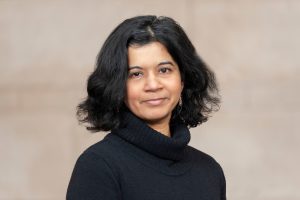
ICCR Invited Speaker
Harini Veeraraghavan is assistant attending computer scientist at Memorial Sloan Kettering Cancer Center since 2012. Before joining MSKCC, she was working as a computer vision scientist at General Electric Research since 2008 after completing her postdoctoral fellowship in Carnegie Mellon University. She received her PhD in computer science from University of Minnesota, Twin-Cities in 2006. Her doctoral research on applying computer vision methods for analyzing real-world video sequences was recognized with outstanding research and education in transportation by the center for transportation research in University of Minnesota.
Her research focuses on combining advanced machine learning with medical image analysis applied to tumor and normal structures segmentation with particular emphasis on developing robust methods for outcomes prediction and longitudinal disease monitoring from radiographic images.
She and her collaborators were recognized with Best in Physics in AAPM 2013 and 2018 meetings for their works on developing advanced machine learning and deep learning based segmentation for tumors and normal structures from MRI. She has been actively involved in organizing the AAPM auto-segmentation grand challenge for 2018 and the forthcoming challenge in 2019.